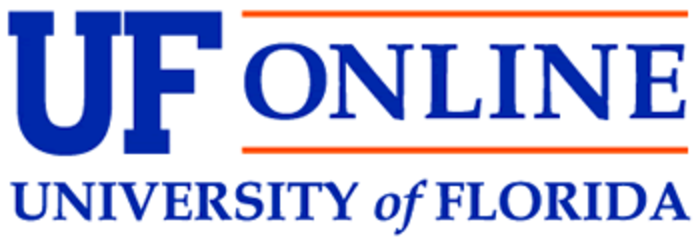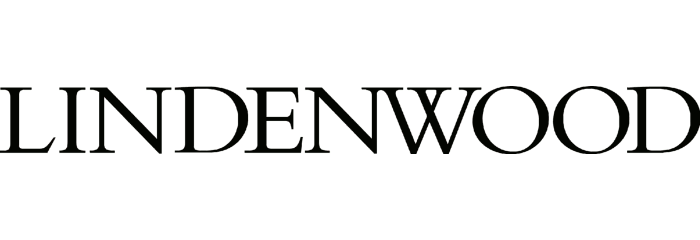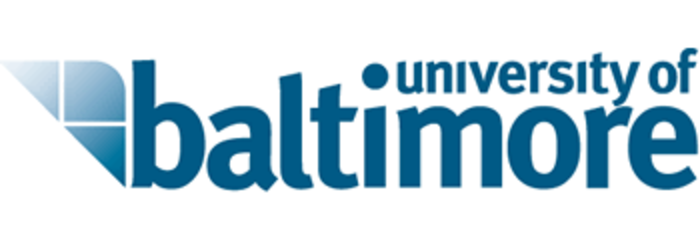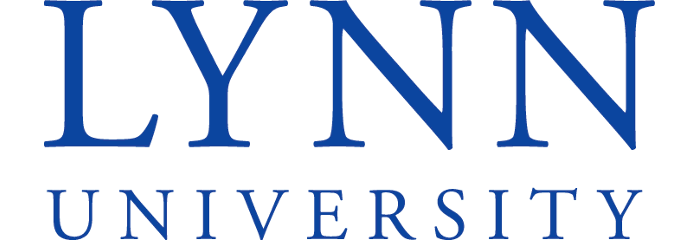2025 Best Master's Degrees in Web Design Development Online
A web design master's degree online offers an in-depth exploration of web aesthetics, user experience, and design technologies. This program provides the skills necessary to create visually appealing and functional websites, integrating both creative and technical elements. UUֱ�� enrollment allows you to balance your studies with personal commitments while accessing cutting-edge resources and industry insights.
Key Takeaways
- Southern New Hampshire University Online leads with 22,314 online graduate students, placing it in the top 1% nationally. This makes it a popular school to pursue a master's degree in web design development online.
- The University of Florida boasts a graduation rate of 90%, ranking in the top 3% nationally.
- The University of Denver features the lowest student-to-faculty ratio on our list at 8:1.
Our ranking methodology for is based on a comprehensive evaluation of accredited schools that each host an online web design master's program. We prioritize institutions with the highest enrollment figures to show the most popular options for distance learners.
List Of Accredited Online Web Design Schools
| School | Online Enrollment | Annual Tuition |
|---|---|---|
| Southern New Hampshire University Online | $18,345 | |
| University of Florida | 7,334 | $15,651 |
| Wilmington University | 3,484 | $9,492 |
| University of Denver | 2,810 | $27,488 |
| Academy of Art University | 1,405 | $25,326 |
| Lindenwood University | 1,210 | $8,265 |
| University of Baltimore | 590 | $22,982 |
| Lynn University | 329 | $13,875 |
2025 Best Master's Degrees in Web Design Development Online
- Online Enrollment: 22,314 enrolled
- Annual Tuition: $18,345
- Location: Manchester (NH)
Online degree:
Why we like them: SNHU is distinguished by its robust online enrollment of 22,314 learners, placing it in the top 1% nationally. Accredited by the New England Commission of Higher Education, the master's in IT program online consists of 12 courses, each lasting 10 weeks, with a focus on practical applications for diverse IT roles. With seven concentrations, including Web Design, students gain expertise in areas such as interactive web development and online security. The curriculum also includes a STEM experiential learning course, providing valuable real-world experience.
- Online Enrollment: 7,334 enrolled
- Annual Tuition: $15,651
- Location: Gainesville (FL)
Online degree:
Why we like them: UF boasts an online enrollment of 7,334 graduate students and a strong retention rate of 97%, placing it among the top 3% of institutions. The Master of Arts in Mass Communication - Web Design is a 37-credit hour program designed for the digital age. It covers essential skills like HTML5, CSS3, JavaScript, strategic communication, and user experience theory. With flexible 100% online delivery, including pre-recorded lectures and live sessions, this program prepares graduates for web design and communication careers.
- Online Enrollment: 3,484 enrolled
- Annual Tuition: $9,492
- Location: New Castle (DE)
Online degree:
Why we like them: WilmU stands out with a high online enrollment, with 3,484 online students. It also has a 96% recommendation rate from its students. The MS in Information Systems Technologies bridges business objectives with technological solutions and offers customizable concentrations like Information Assurance, Management Information Systems, Web Design, and Technology Project Management. This interdisciplinary program can be completed in as little as one year through online, on-campus, or hybrid formats. Graduates are well-prepared for leadership roles in a growing job market.
- Online Enrollment: 2,810 enrolled
- Annual Tuition: $27,488
- Location: Denver (CO)
Online degree:
Why we like them: UD ranks in the top 9% of universities for online enrollment, with 2,810 students engaged in remote studies. The Master of Science in Information Technology, Web Design, and Development is a 48-credit program that can be completed in as few as 18 months. This fully online program features core courses like Business Essentials for Technology Leaders and Technology Leadership, along with concentration-specific courses, such as Web Enabled Information Systems and Advanced Website Design. The curriculum emphasizes skills in JavaScript, jQuery, and Ajax, making it ideal for aspiring web developers.
- Online Enrollment: 1,405 enrolled
- Annual Tuition: $25,326
- Location: San Francisco (CA)
Online degree:
Why we like them: AAU boasts a solid online enrollment ranking in the top 19th percentile nationwide, highlighting its commitment to effective distance education. The Master of Arts in Interaction and UI/UX Design program offers a blend of practical and theoretical knowledge, emphasizing user experience and interface design. Students explore specialized areas, including Visual Design, Interaction Design, and Information Architecture. With flexible, fully online coursework and no in-person requirements, learners can complete their degrees remotely, preparing them for diverse roles in the design industry.
- Online Enrollment: 1,210 enrolled
- Annual Tuition: $8,265
- Location: Saint Charles (MO)
Online degree:
Why we like them: LU ranks sixth for popularity with 1,210 online graduate students, placing it in the top 21% for online participation nationwide. The online Master of Arts in Art and Design requires 30 credit hours, blending theoretical foundations and practical skills. Students can customize their studies with courses covering graphic design, user experience, photography, digital arts, and project management. With a flexible timeline of 2-4 years for completion, the program emphasizes experiential learning through capstone projects or internships, connecting academic knowledge directly with career applications.
- Online Enrollment: 590 enrolled
- Annual Tuition: $22,982
- Location: Baltimore (MD)
Online degree:
Why we like them: UB offers a Master of Science in Interaction Design and Information Architecture, a flexible online program for working professionals. With a commendable 10:1 student-to-faculty ratio, UB ensures personalized education and ample faculty support. We also want to note the school's remarkable 91% recommendation rate that reflects high satisfaction. The curriculum balances theoretical knowledge with practical skills, equipping students for successful web design and information architecture careers without needing in-person attendance.
- Online Enrollment: 329 enrolled
- Annual Tuition: $13,875
- Location: Boca Raton (FL)
Online degree:
Why we like them: Even though its last on our list, Lynn has hundreds enrolled online at the graduate level. Its online Master of Science in User Experience (UX) Design is designed for recent graduates and seasoned professionals, focusing on enhancing design skills in a flexible online format. The program encompasses courses like Prototyping and Usability Testing, User Interface Design, and Design Thinking, totaling 36 credit hours. This curriculum prepares graduates to excel in creating user-centered digital environments aligning with current industry demands.
Overview of a Master's in Web Design
A master of science in web design teaches you how to build websites through both technical and non-technical skills at varying levels of complexity. You'll discover the nuances of creating mobile applications, interactive websites, and all the visual design components that make up these digital products. In order to learn web design, you'll also need to understand various methods of computer programming and web development.
Web master's degrees require between 30 and 60 course credits, which will include everything from HTML to JavaScript, as well as more creative classes covering graphic design and digital product design. Most online web design degrees at the master's level take between one and three years to complete, depending on your schedule. In order to be accepted into such a program, you'll need to have completed a bachelor's degree, such as a computer science degree or an information technology degree.
Can I Get a Web Design Master's Degree Online?
There are a wide variety of schools for web design that offer online programs. They can be found at every level, from associate degrees to online bachelor's degrees in web design, and even graduate degrees, as the rankings list above illustrates.
Students finish their online coursework through a learning management system (LMS), which facilitates tests, homework, discussion forums, and classroom projects. Your school's LMS may also offer forums and chat rooms for live discussions between your peers and teachers. For MS web design classes, you're required to use professional software, such as Adobe Dreamweaver, GIMP, or Google Web Designer. You'll also be asked to complete projects by developing your own websites.
Common Courses for a Web Design Major
Before you apply for college, you may want to know what coursework lies ahead of you. The curriculum for a master's in design online combines several subjects to help students understand the creative and technical processes of website design and development. This involves teaching a combination of software and design programs alongside courses in product development and graphic design. Information technology and data communication courses are also included in the curriculum.
Let's take a look at some core courses you'll encounter in a web design master's program:
User Experience (UX) Theory and Research
In this course, you'll learn how User Experience Design (UED) is driven by Human-Computer Interaction (HCI) by taking practical tools and using them to build web properties. You'll learn processes, such as user flows, information architecture, usability testing, and optimization techniques.
Business Data Communication and Networks
This course teaches data communication through the lens of network security, management concepts, wireless networks, signal processing, and IoT areas. Through these aspects of data communication, you'll be skilled at creating more user-friendly websites.
UX/UI Design Principles
UX and User Interface (UI) make websites more appealing to specific audiences. UX and UI design principles look at the visual, creative, and conceptual components of website building, alongside the accessibility of page layouts, which make for an appealing browsing experience.
Social Media Advertising for Conversions
Social media is often directly tied to web design by click-through-rates and customer acquisition. Courses in social media advertising for conversions teach you how to develop social media campaigns by utilizing design and marketing techniques.
Interactive Design for Mobile
To start the interactive design class for mobile, you'll get a crash course in interactive concepts for mobile devices, such as how dialogue plays a part in the people and product relationship. Then you'll get hands-on experience designing actual mobile applications for iOS and Android.
Web Design Concentrations
If you want to expand on the required coursework that many web design colleges offer, you may be able to choose a concentration to go along with your degree.
Much of web design falls on the creative side; therefore, a concentration in graphic design or multimedia production may help you better understand the aesthetics of digital products and give you more skills for developing creative assets.
Or you may want to further explore mobile applications through a mobile development concentration, which looks at the software and application development for tablets, smartphones, and smartwatches. Alternatively, you can pursue a web development degree.
What Can You Do With a Web Design Degree?
By earning a degree from a web design graduate school, you'll be eligible for careers in development, design, management, and even marketing.
Your job path ultimately depends on what aspect of web design you identify with most. If you prefer the technical side of HTML or JavaScript, you may pursue a career in web development, which relies heavily on coding languages. Or, perhaps your affinities lie with website aesthetics. In this case, a graphic design degree may be a preferable path.
In general, web design careers offer average to slightly above-average salaries and job growth projections. There is no need to worry about whether your online degree is respected by employers, as most hiring managers consider them equal to traditional degree programs.
As we check out the job options for people who finish a master's degree in web design, it's important to know that what employers expect can vary. Some jobs might only need a high school diploma or bachelor's degree when you're starting out. But having a master's degree could help you make more money in your job or move up to a manager's role faster.
Web Developers and Digital Designers
are all about visual communication with a well-rounded approach. They create the text, images, and videos that appear on a website while adding sound and other audio elements. They work on interface layouts and functionality as well to ensure a properly functioning website.
Graphic Designers
are artists who create compelling visual works on digital platforms. Their projects can be used in advertising campaigns, websites, social media posts, or product marketing materials. Some graphic designers create works by hand, while others use computer software programs. The overall goal of graphic designers is to inspire, inform, and captivate consumers.
Web Administrators
The job of is to oversee the design, deployment, and maintenance of website projects. They may fix page errors, update important links, and add firewall security measures. In general, they're meant to ensure an effective and efficient browsing experience for users. They often earn salaries near six figures and have a comfortable job growth projection.
Search Marketing Strategists
research and analyze browsing data from consumers in order to increase engagement for websites. They look closely at search algorithms from engines like Google to create better marketing strategies. Search marketing strategists may also be called SEO strategists or internet marketers.
Is Web Designer a Good Career Choice?
According to of professionals in the field, web designers have a medium job satisfaction rating of 3.3 out of 5 stars. However, web design remains a good career choice for those with an interest in how consumers interact with the internet. In all the jobs listed above, you'll look at how to create better experiences for users on web products — whether that's through creative design, user interfaces, or marketing techniques.
Is a Master's in Web Design Worth It?
Examining online web design master's programs reveals a range of benefits and drawbacks worth considering. In this analysis, we'll objectively explore the pros and cons to help individuals make informed decisions about their educational and career paths.
Potential Benefits
-
Mobile application design is growing in demand. According to 2022 survey data from Top Design Firms, of small businesses have their own app, as compared to 32% in 2021. In fact, graduates will see a positive job outlook in many roles within this field thanks to the growing demand for web products as a whole.
-
Web design is a massive industry. Recent statistics from IBIS World show that web design services are an industry in the United States alone.
-
You can easily enter into consulting or freelance work. Many companies want a simple website built without the hassle of a full-service creative agency. As a freelancer, you'll be able to use your skills to create your own small business without relying on outside employment.
Potential Drawbacks
-
Your education continues long after earning a degree. With constant software updates, new technologies, and changing design trends, you'll always be required to re-learn the latest and most effective strategies for web design.
-
There are limited opportunities for hands-on experience or networking. Unlike on-campus programs where students have direct access to instructors and peers, online programs may lack interactive experiences, such as in-person workshops, collaborative projects, or internships. Additionally, the absence of face-to-face interaction may hinder networking opportunities, making it challenging for students to build professional connections within the industry.
-
Not every project will pique your interest. Website designers work for clients in every industry, from finance to health care. In many cases, projects you encounter will be fairly simple without the added benefit of challenging your skills or peaking your interest.
Deciding to pursue a master's degree in web design online is a personal choice, influenced by various factors and considerations. It may be helpful to consider that web designers are typically characterized by creativity and originality, thriving in environments that foster self-expression and innovation. Moreover, they often exhibit enterprising traits, naturally assuming leadership roles and excelling in influencing and persuading others to realize their vision.
However, amidst these qualities lies a myriad of considerations, ranging from educational pathways and career aspirations to personal preferences and financial implications. Ultimately, pursuing a web design master's degree online requires careful reflection and assessment of individual strengths, interests, and goals, ensuring alignment with one's unique talents and aspirations.
FAQs About an Online Web Design Degree
Which Master's Degree Is Best for Web Development?
Software engineering is likely the best master's degree for aspiring web developers. The coursework requires you to learn computer languages that are used to create websites. Software engineering degrees include web development courses because of the similar languages used in coding, but it will also cover systems engineering and software development, which make it more complex than web development as a standalone practice.
What Degree Is Best for Web Design?
Information technology degrees are great for web designers because they look at the various systems along with the hardware and software components that make up modern-day computers. This will give you a technical edge in website design because you'll understand how different system components interact.
An information technology master's degree is ideal if you can include a creative concentration, such as graphic design or multimedia production.
Is Web Design the Same as Web Developer?
Web designers tend to focus on the visual components and efficacy of a website, such as the graphics, layout, and overall user experience. Web developers are primarily responsible for writing the code that dictates how a website operates at its core. They build interfaces, manage databases, and ensure property functionality. Designers work in tandem with web developers by integrating the creative and functional components from their designs.
How Difficult Is Web Designing?
Web design isn't as complex as software engineering, for example, but it can be difficult for some students to pick up on. There are coding languages that need to be learned on top of developing a good sense of creative direction and usability. If you have a strictly technical mindset, it may be hard to pick up on the creative nuances of the role. Conversely, highly creative students may find it hard to understand complex coding tasks.
Student Reviews of Online Web Design Programs
I sympathize with those who gave bad reviews to the school because they probably didn't pass the classes or didn't get the degree. I am receiving my master degree soon, and planning to get another major here because I have learned and improved a lot while studying here. Sadly, not every student is prepared or ready when they enroll in the school.
Review Date: 5/26/2019
Would Recommend: Yes
Helpful for Career: Yes
Several times throughout my degree program, I was humbled by the entire staff and faculty's committment to student success. While a distance learning degree always has its frustrations and is never perfect, despite those hiccups, I always had instructors and advisors always willing to step up and overcome alongside me. The Christian atmosphere of the school helped keep me grounded while in my studies, and it opened doors for meaningful conversations with instructors without the fear of being mocked.... Read More
Review Date: 3/13/2017
Would Recommend: Yes
Helpful for Career: Yes
The Bentley Human Factors in Information Design Program is helping me build a portfolio and gain invaluable experience with client projects, group collaboration and independent work. I would recommend it to anyone looking to get into UX design and UX research.
Review Date: 11/30/2017
Would Recommend: Yes
Helpful for Career: No









